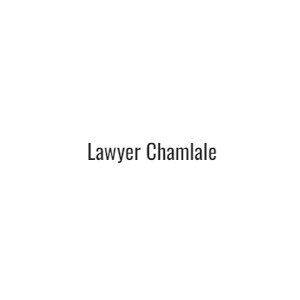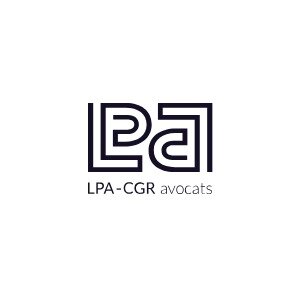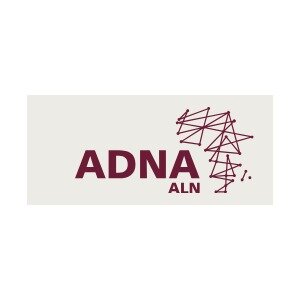Best Private Equity Lawyers in Casablanca
Share your needs with us, get contacted by law firms.
Free. Takes 2 min.
List of the best lawyers in Casablanca, Morocco
About Private Equity Law in Casablanca, Morocco
Private Equity refers to investment in private companies or the buyout of public companies to make them private. In Casablanca, Morocco, Private Equity plays a significant role in driving corporate growth, supporting entrepreneurial ventures, and promoting economic development. As the country's financial capital, Casablanca hosts many national and international investors, Private Equity firms, and venture capitalists. The legal framework governing Private Equity in Casablanca is designed to ensure transparency, protect investors, and encourage both local and foreign investment while balancing compliance with Moroccan regulations.
Why You May Need a Lawyer
Private Equity transactions in Casablanca can be complex and involve significant financial, legal, and regulatory considerations. Some common situations where you may require legal help include:
- Setting up or structuring a Private Equity fund or firm
- Drafting or reviewing investment agreements and term sheets
- Conducting due diligence on potential investments
- Navigating regulatory approvals from Moroccan investment authorities
- Managing disputes between investors, portfolio companies, or partners
- Ensuring compliance with foreign investment laws and currency regulations
- Handling exit strategies, such as mergers, acquisitions, or IPOs
- Dealing with tax implications related to Private Equity transactions
A knowledgeable lawyer can help you avoid risks, secure your investments, and ensure that all agreements follow Moroccan law.
Local Laws Overview
Several key laws and regulations impact Private Equity in Casablanca, Morocco:
- Investment and Company Laws: The creation, management, and liquidation of companies is primarily governed by the Moroccan Commercial Code and Companies Law (Loi n° 17-95). Laws setting out requirements for foreign ownership, board structure, and reporting also apply.
- Foreign Investment Regulations: The Office des Changes regulates the inflow and outflow of foreign capital. Reporting foreign investments and complying with currency controls are essential for international investors.
- Financial Markets Oversight: The Autorité Marocaine du Marché des Capitaux (AMMC) supervises financial markets, public offerings, and some Private Equity activities, ensuring investor protection and transparency.
- Taxation: Private Equity transactions are subject to corporate income tax, capital gains tax, and value-added tax (VAT) considerations, as stipulated by Moroccan tax law.
- Labor and Employment Law: Acquisitions or restructuring of businesses may affect employees and trigger requirements under Moroccan labor laws.
It is important to stay updated on evolving regulations and administrative guidelines, especially when cross-border investments are involved.
Frequently Asked Questions
What is Private Equity?
Private Equity is an investment in private companies, or buyouts of publicly traded companies, that aims to enhance value and provide returns through future sales or public offerings.
Can foreign investors participate in Private Equity in Casablanca?
Yes, foreign investors can participate, but they must comply with currency regulations and report investments to the Office des Changes. Some sectors may have specific restrictions.
Are there restrictions on the types of companies Private Equity funds can invest in?
Generally, Private Equity funds can invest in most sectors, but some industries such as defense, energy, or telecommunications may require special approvals or have limitations for foreign investors.
What legal structures are commonly used for Private Equity funds in Morocco?
Funds may be established as joint-stock companies (Société Anonyme), limited partnerships, or as investment vehicles subject to AMMC oversight, such as Organismes de Placement Collectif en Capital (OPCC).
What due diligence is required before investing?
Comprehensive legal, financial, commercial, and operational due diligence is essential to identify risks and ensure compliance. This includes reviewing company statutes, contracts, licenses, and financial records.
How are Private Equity transactions taxed in Morocco?
Profits from Private Equity investments are generally subject to corporate income tax and sometimes capital gains tax. The exact rate depends on the asset type and holding period.
What is the typical process for exiting a Private Equity investment?
Common exit strategies include selling shares to strategic buyers, conducting an initial public offering (IPO), or selling to another investment firm. Each option has specific legal and regulatory requirements.
Do Private Equity transactions require regulatory approval?
Some transactions, especially those involving large sums or regulated industries, may require approval from the AMMC, competition authorities, or sector-specific regulators.
What protections exist for minority investors in Private Equity deals?
Investor protection provisions, such as tag-along and drag-along rights, are usually included in agreements. Moroccan company law also provides certain rights to minority shareholders.
How can legal disputes in Private Equity be resolved?
Disputes can be resolved through negotiation, mediation, or arbitration. Many contracts specify arbitration under Moroccan or international rules to provide a neutral forum for resolving conflicts.
Additional Resources
The following organizations and resources may be helpful for individuals seeking legal advice or information on Private Equity in Casablanca:
- Autorité Marocaine du Marché des Capitaux (AMMC) - Regulates capital markets and investment activities.
- Office des Changes - Governs foreign exchange and oversees foreign investments.
- Moroccan Ministry of Economy and Finance - Provides guidelines on taxation and foreign investment.
- Confédération Générale des Entreprises du Maroc (CGEM) - Offers support for businesses and investors.
- Local chambers of commerce and certified legal professionals specialized in corporate and investment law.
Next Steps
If you are considering a Private Equity transaction in Casablanca or require advice on a specific issue, the following steps can help guide you:
- Define your objectives and understand the scope of your potential investment or transaction.
- Gather relevant documents, including company records, financial statements, and any existing contracts.
- Consult a qualified lawyer or law firm specializing in Private Equity and corporate law in Casablanca.
- Discuss your goals, concerns, and any regulatory compliance requirements with your legal advisor.
- Stay informed about updates in local laws and regulations that may affect your transaction.
- Follow your lawyer’s recommendations for due diligence, contract negotiation, and regulatory filings.
Taking these steps will help safeguard your interests, ensure compliance, and contribute to the success of your Private Equity activities in Casablanca, Morocco.
Lawzana helps you find the best lawyers and law firms in Casablanca through a curated and pre-screened list of qualified legal professionals. Our platform offers rankings and detailed profiles of attorneys and law firms, allowing you to compare based on practice areas, including Private Equity, experience, and client feedback.
Each profile includes a description of the firm's areas of practice, client reviews, team members and partners, year of establishment, spoken languages, office locations, contact information, social media presence, and any published articles or resources. Most firms on our platform speak English and are experienced in both local and international legal matters.
Get a quote from top-rated law firms in Casablanca, Morocco — quickly, securely, and without unnecessary hassle.
Disclaimer:
The information provided on this page is for general informational purposes only and does not constitute legal advice. While we strive to ensure the accuracy and relevance of the content, legal information may change over time, and interpretations of the law can vary. You should always consult with a qualified legal professional for advice specific to your situation.
We disclaim all liability for actions taken or not taken based on the content of this page. If you believe any information is incorrect or outdated, please contact us, and we will review and update it where appropriate.

















